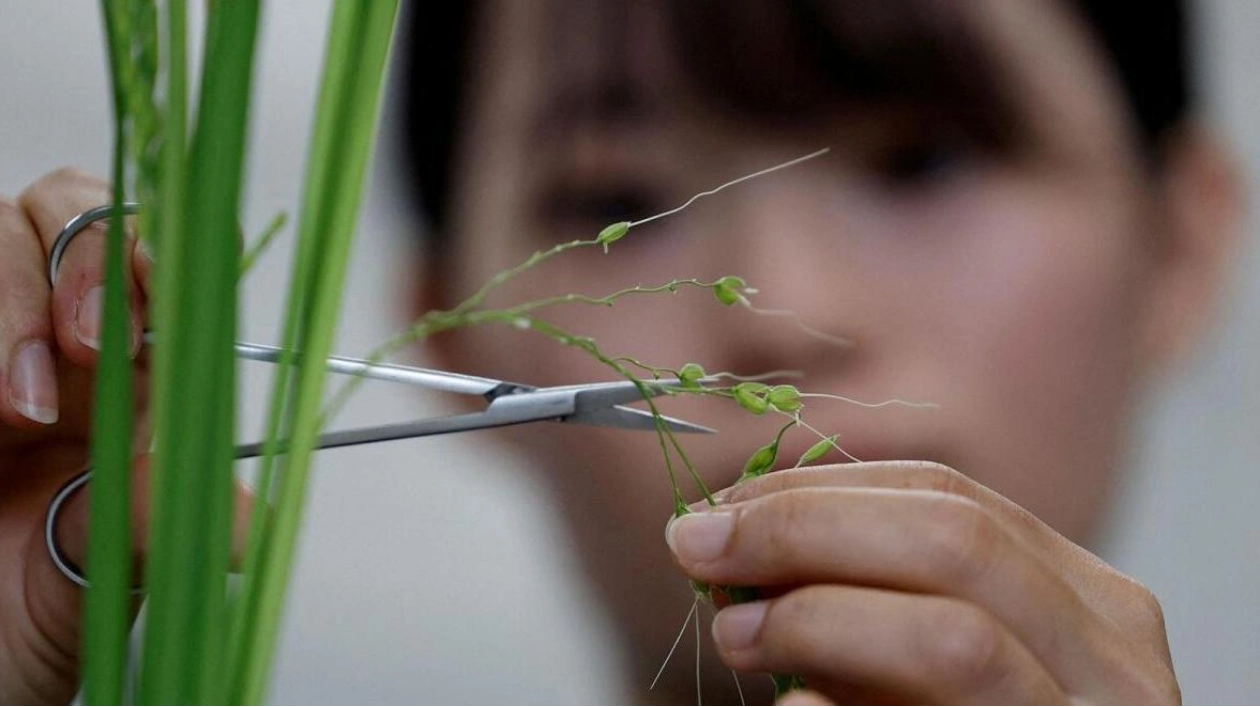Japan is grappling with a rice shortage following extreme weather that devastated last year's crop, and is now hoping that new heat-resistant varieties of its staple food can help prevent future supply shocks. Last summer's high temperatures and dry conditions resulted in reduced rice yields in key growing regions and compromised the quality of grains, leading to the lowest inventories in 25 years, according to official data. Coupled with increased demand, partly due to record inbound tourism, supermarkets across the country have faced difficulties in maintaining rice stocks in recent months, with some imposing purchase limits on customers. The local government in Saitama, a prefecture north of Tokyo known for its high temperatures, is advancing a nationwide project to develop more resilient rice in an effort to avoid future shortages.
Yoshitaka Funakawa, a 73-year-old farmer involved in Saitama's heat-resistant rice trial known as 'emihokoro' or 'beaming smile', believes that without varieties resistant to high temperatures, the situation will become increasingly challenging. Japan experienced its warmest July on record in 2024, with high heat affecting the starch accumulation in rice grains, making them less transparent, spotted with white flecks, and less appealing for consumption, thereby lowering the crop's market value. Naoto Ooka, who manages rice breeding at Saitama's Agricultural Technology Research Centre, noted that the more the cloudy, white phenomenon appears on rice, the lower the grade becomes, impacting farmers' incomes. At the centre, researchers are working on creating more resistant varieties by cultivating and cross-pollinating seeds from across Japan.
Rice is a source of national pride in Japan, known for its premium grains used in signature dishes like sushi, and is also a widely consumed staple. Historically, Japan has been self-sustainable in rice production, despite being the world's fourth-largest economy and importing over 60% of its food resources. Last year's poor yields have significantly increased prices. Private rice inventories in Japan reached 1.56 million tonnes in June 2024, the lowest since 1999, according to the agriculture ministry. Inflation data for July revealed that rice prices, excluding the premium 'koshihikari' brand, saw the highest increase in over 20 years. At a branch of the Akidai supermarket chain in western Tokyo, shelves typically stocked with rice were largely empty, as wholesalers struggled to meet orders.
Although the current shortage might ease with the new crop available as early as September, tight supply is anticipated to persist through next year due to hot weather posing risks for upcoming harvests, according to research firm BMI. The government is increasingly concerned that climate change will long-term threaten its most important crop unless measures are taken. An agriculture ministry report projected a 20% decline in paddy rice yields by 2100 compared to the previous century. The ministry identified the shift to high temperature-tolerant varieties as the key strategy to mitigate the impact of climate change on rice crops and potential future shortages.






